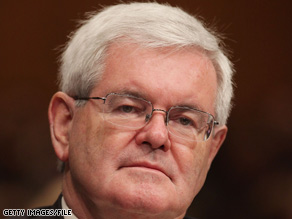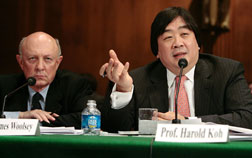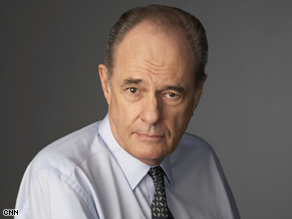By
Evan Thomas | NEWSWEEK
Andrew Eccles for Newsweek
Traditionally, punditry in Washington has been a cozy business. To get the inside scoop, big-time columnists sometimes befriend top policymakers and offer informal advice over lunch or drinks. Naturally, lines can blur. The most noted pundit of mid-20th-century Washington, Walter Lippmann, was known to help a president write a speech—and then to write a newspaper column praising the speech.
Paul Krugman has all the credentials of a ranking member of the East Coast liberal establishment: a column in The New York Times, a professorship at Princeton, a Nobel Prize in economics. He is the type you might expect to find holding forth at a Georgetown cocktail party or chumming around in the White House Mess of a Democratic administration. But in his published opinions, and perhaps in his very being, he is anti-establishment. Though he was a scourge of the Bush administration, he has been critical, if not hostile, to the Obama White House.
In his twice-a-week column and his blog, Conscience of a Liberal, he criticizes the Obamaites for trying to prop up a financial system that he regards as essentially a dead man walking. In conversation, he portrays Treasury Secretary Tim Geithner and other top officials as, in effect, tools of Wall Street (a ridiculous charge, say Geithner defenders). These men and women have "no venality," Krugman hastened to say in an interview with NEWSWEEK. But they are suffering from "osmosis," from simply spending too much time around investment bankers and the like. In his Times column the day Geithner announced the details of the administration's bank-rescue plan, Krugman described his "despair" that Obama "has apparently settled on a financial plan that, in essence, assumes that banks are fundamentally sound and that bankers know what they're doing. It's as if the president were determined to confirm the growing perception that he and his economic team are out of touch, that their economic vision is clouded by excessively close ties to Wall Street."
If you are of the establishment persuasion (and I am), reading Krugman makes you uneasy. You hope he's wrong, and you sense he's being a little harsh (especially about Geithner), but you have a creeping feeling that he knows something that others cannot, or will not, see. By definition, establishments believe in propping up the existing order. Members of the ruling class have a vested interest in keeping things pretty much the way they are. Safeguarding the status quo, protecting traditional institutions, can be healthy and useful, stabilizing and reassuring. But sometimes, beneath the pleasant murmur and tinkle of cocktails, the old guard cannot hear the sound of ice cracking. The in crowd of any age can be deceived by self-confidence, as Liaquat Ahamed has shown in "Lords of Finance," his new book about the folly of central bankers before the Great Depression, and David Halberstam revealed in his Vietnam War classic, "The Best and the Brightest." Krugman may be exaggerating the decay of the financial system or the devotion of Obama's team to preserving it. But what if he's right, or part right? What if President Obama is squandering his only chance to step in and nationalize—well, maybe not nationalize, that loaded word—but restructure the banks before they collapse altogether?
The Obama White House is careful not to provoke the wrath of Krugman any more than necessary. Treasury officials go out of their way to praise him by name (while also decrying the bank-rescue prescriptions of him and his ilk as "deeply impractical"). But the administration does not seek to cultivate him. Obama aides have invited commentators of all persuasions to the White House for some off-the-record stroking; in February, after Krugman's fellow Times op-ed columnist David Brooks wrote a critical column accusing Obama of overreaching, Brooks, a moderate Republican, was cajoled by three different aides and by the president himself, who just happened to drop by. But, says Krugman, "the White House has done very little by way of serious outreach. I've never met Obama. He pronounced my name wrong"—when, at a press conference, the president, with a slight note of irritation in his voice, invited Krugman (pronounced with an "oo," not an "uh" sound) to offer a better plan for fixing the banking system.
It's possible that Krugman is a little wounded by this high-level disregard, and he said he felt sorry about criticizing officials whom he regards as friends, like White House Council of Economic Advisers chair Christina Romer. But he didn't seem all that sorry.
Krugman is having his 15 minutes and enjoying it, although at moments, as I followed him around last week, he seemed a little overwhelmed. He is an unusual mix, at once nervous, shy, sweet and fiercely sure of himself. He enjoys his outsider's power: "No one has as big a megaphone as I have," he says. "Aside from the world going to hell, it's great." He is in much demand on the talk-show circuit: PBS's "The NewsHour" and "Charlie Rose" on Monday last week, ABC's "This Week With George Stephanopoulos" this past Sunday. Someone has even cut a rock video on YouTube: "Hey, Paul Krugman, why aren't you in the administration?" A singer croons, "Hey, Paul Krugman, where the hell are you, man? We need you on the front lines, not just writing for The New York Times." (And the cruel chorus: "All we hear [from Geithner] is blah, blah, blah.")
Krugman is not likely to show up in an administration job in part because he has a noble—but not government-career-enhancing—history of speaking truth to power. With dry humor, he once told a friend the story of attending an economic summit in Little Rock after Bill Clinton was elected president in 1992. As the friend recounted the story to NEWSWEEK, "Clinton asked Paul, 'Can we have a balanced budget and health-care reform?'—essentially, can we have it all? And Paul said, 'No, you have to be disciplined. You have to make choices.' Then Paul says to me (deadpan), 'That was the wrong answer.' Then Clinton turns to Laura Tyson and asks the same questions, and she says, 'Yes, it's all possible, you have your cake and eat it too.' And then [Paul] says, 'That was the right answer'." (Tyson became chairman of Clinton's Council of Economic Advisers; she did not respond to requests to comment.) Krugman confirmed the story to NEWSWEEK WITH a smile. "I'm more tolerant now," he says. But at the time, he was bitter that he was kept out of the Clinton administration.
Krugman has a bit of a reputation for settling scores. "He doesn't suffer fools. He doesn't like hauteur in any shape or form. He doesn't like to be f––ked with," says his friend and colleague Princeton history professor Sean Wilentz. "He's not a Jim Baker; he's not that kind of Princeton," says Wilentz, referring to the ur-establishment operator who was Reagan's secretary of the Treasury and George H.W. Bush's secretary of state. But Wilentz went on to say that Krugman is "not a prima donna, he wears his fame lightly," and that Krugman is not resented among his academic colleagues, who can be a jealous lot. Krugman's fellow geniuses sometimes tease him or intentionally provoke his wrath. At an economic conference in Tokyo in 1994, Krugman spent so much time berating others that his friends purposely started telling him things that they knew weren't true, just to see him get riled up. "He fell for it every time," said a journalist who was there but asked not to be identified so she could speak candidly. "You'd think that eventually, he would say, 'Oh, come on, you're just jerking my chain'." Krugman says he doesn't recall the incident, but says it's "possible."
Born of poor Russian-immigrant stock, raised in a small suburban house on middle-class Long Island, Krugman, 56, has never pretended to be in the cool crowd. Taunted in school as a nerd, he came home one day with a bloody nose—but told his parents to stay out of it, he would take care of himself. "He was so shy as a child that I'm shocked at the way he turned out," says his mother, Anita. Krugman says he found himself in the science fiction of Isaac Asimov, especially the "Foundation" series—"It was nerds saving civilization, quants who had a theory of society, people writing equations on a blackboard, saying, 'See, unless you follow this formula, the empire will fail and be followed by a thousand years of barbarism'."
His Yale was "not George Bush's Yale," he says—no boola-boola, no frats or secret societies, rather "drinking coffee in the Economics Department lounge." Social science, he says, offered the promise of what he dreamed of in science fiction—"the beauty of pushing a button to solve problems. Sometimes there really are simple solutions: you really can have a grand idea."
Searching for his own grand idea (his model and hero is John Maynard Keynes) Krugman became one of the top economists in the country before he turned 30. He took a job on the Council of Economic Advisers in the Reagan administration at the age of 29. His colleague and rival was another brilliant young economist named Larry Summers. The two share a kind of edgy braininess, but they took different career paths—Summers as an inside player, working his way up to become Treasury secretary under Clinton and president of Harvard, then Obama's chief economic adviser. Krugman preferred to stay in the world of ideas, as an "irresponsible academic," he puts it, half jokingly, teaching at Yale, MIT, Stanford and Princeton. In 1999 he almost turned down the extraordinary opportunity to become the economic op-ed columnist for The New York Times. He was afraid that if he became a mere popularizer he'd blow his shot at a Nobel Prize.
Last October, he won his Nobel. Most economists interviewed by NEWSWEEK agreed that he richly deserved it for his pathbreaking work on global trade—his discovery that traditional theories of comparative advantage between nations often do not work in practice. He was stepping into the shower at a hotel when his cell phone rang with the news that he had achieved his life's ambition. At first, he thought the call might be a hoax. His wife Robin's reaction, once the initial thrill wore off, was, "Paul, you don't have time for this." He is, to be sure, insanely busy, producing two columns a week, teaching two courses and still writing books (his latest is "The Return of Depression Economics and the Crisis of 2008"). He posts to his blog as many as six times a day. Last Thursday morning, he was gleeful because he was able to thump a blogger who insisted, wrongly, that Keynes did not use much math in his work.
In class that day, discussing global currency exchange with a score of undergraduates, he was gentle, bemused, a little absent-minded, occasionally cracking mordant jokes (on trade with China: "They give us poisoned products, we give them worthless paper"). He says he plans to reduce his teaching load a little, and his colleagues say his best academic work is behind him. "His academic career culminated with him winning the prize," says his Princeton colleague and friend Gene Grossman. "He's not that engaged anymore with academic research. He has a public career now. That's what he views as his main avocation now—as a public intellectual."
He has made enemies in the economics community. "He's become more and more outspoken. A lot of what he says is wrong and not considered," says Daniel Klein, professor of economics at George Mason University. A longtime mentor, MIT Nobel laureate Robert Solow, who taught Krugman as a grad student, remembers him as "very unassertive, mild-mannered. One thing he still has is a smile that plays around his face when he's talking, almost like he's looking at himself and thinking, 'What am I doing here?' " But, Solow added, "when he started writing his column, his personality adapted to it."
Academic life, bolstered by book and lecture fees, has been lucrative and comfortable. Krugman and Robin (his second wife; he has no children) live in a lovely custom-built wood, stone and glass house by a brook in bucolic Princeton. Krugman pointed out that unlike some earlier Nobel Prize winners, he has not asked for a better parking place on campus. (He was not kidding.)
Arriving at the Times just before Bush's election in 2000, he was soon writing about politics and national security as well as economics, sharply attacking the Bush administration for invading Iraq. Someone at the Times—Krugman won't say who—told him to tone it down a bit and stick to what he knew. "I made them nervous," he says. In 2005, Times ombudsman Daniel Okrent wrote, "Op-Ed columnist Paul Krugman has the disturbing habit of shaping, slicing and selectively citing numbers in a fashion that pleases his acolytes but leaves him open to substantive assaults." Krugman says that Okrent "caved" to the criticism of conservative ideologues who were out to get him. ("I tried to be an honest broker," says Okrent. "But when someone challenged Krugman on the facts, he tended to question the motivation and ignore the substance.") It's true that during the Bush era Krugman was the target of cranks and kooks, but it is also true that in areas outside his expertise he sometimes gets his facts wrong (his record has improved lately). Krugman is unrepentant about his Bush bashing. "I was more right in 2001 than anyone in the pundit class," he says.
Ideologically, Krugman is a European Social Democrat. Brought up to worship the New Deal, he says, "I am not overflowing with human compassion. It's more of an intellectual thing. I don't buy that selfishness is always good. That doesn't fit the way the world works." Krugman is particularly passionate about the growing gap between rich and poor. Last week he raced down to Washington to testify on the subject before the House Appropriations Committee. In the 2008 election, Krugman first leaned toward populist John Edwards, then Hillary Clinton. "Obama offered a weak health-care plan," he explains, "and he had a postpartisan shtik, which I thought was naive."
Krugman generally applauds Obama's efforts to tax the rich in his budget and try for massive health-care reform. On the all-important questions of the financial system, he says he has not given up on the White House's seeing the merits of his argument—that the government must guarantee the liabilities of all the nation's banks and nationalize the big "zombie" banks—and do it fast. "The public wants to trust Obama," Krugman says. "This is still Bush's crisis. But if they wait, Obama will be blamed for a fair share of the problem."
Obama administration officials are dismissive of Krugman's arguments, although not on the record. One official made the point that pundits can have a 60 percent chance of being right—and just go for it. They have nothing to lose but readers, and Krugman's many fans have routinely forgiven his wrong calls. The government does not have the luxury of guessing wrong. If Obama miscalculates, he could truly crash the stock market and drive the economy into depression. Krugman's suggestion that the government could take over the banking system is deeply impractical, Obama aides say. Krugman points to the example of Sweden, which nationalized its banks in the 1990s. But Sweden is tiny. The United States, with 8,000 banks, has a vastly more complex financial system. What's more, the federal government does not have anywhere near the manpower or resources to take over the banking system.
Krugman swats away these arguments, though he acknowledges he's not a "detail" man. He believes he is fighting a philosophical battle against the plutocrats and money-changers. Although he thinks Geithner has been captured by Wall Street, he has hope for Summers. "I have a strong suspicion that if Larry was on the outside and I was on the inside, we'd be reversing roles," he says, but adds, "Well, not entirely. Larry has more faith in markets. I'm more of an interventionist."
Last week Krugman and Summers were "playing phone tag." ("It doesn't necessarily mean that much," says Krugman. "We've known each other all our adult lives." Summers initiated the call; Krugman suspects he wanted to talk him through the administration's plan.) In Friday's column, Krugman tweaked Summers directly for his faith in markets, though he grudgingly gave the Obamaites credit for calling for extensive regulation of the financial world. Krugman thinks that Obama needs some kind of "wise man" to advise him and mentions Paul Volcker, the former Fed chairman who tamed inflation for Reagan and now heads an advisory panel for Obama. How about Krugman himself for that role? "I'm not a backroom kind of guy," he says, schlumped over in his Princeton office, which overflows with unopened mail. He describes himself as a "born pessimist" and a "natural rebel." But he adds, "What I have is a voice." That he does.
With Pat Wingert, Daniel Stone, Michael Hirsh and Dina Fine Maron
Original here












